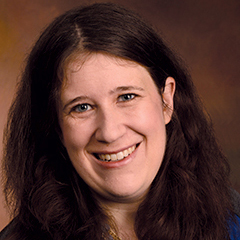
When my husband and I moved to Chicago, he made a point of joining our local Avondale Neighborhood Association. Eventually I tagged along, and found fellow awesome people dedicated to making our community better. Now, when we go to an ANA event, we often see a dozen people we know – and like – resulting in me loving my neighborhood even more.
ANA, the Association of Health Care Journalists, and a Chicago bicycle group called The Chainlink are among the groups I am thrilled I’ve joined in recent years, and for good reasons. It turns out new research indicates that belonging to multiple groups is more important than having lots of friends, which is compelling both for long-term care professionals and residents who live in communities.
Group memberships improve self-esteem, say Canadian Institute for Advanced Research fellows, who were specifically looking at school children, the homeless and the elderly. The caveat is that the groups have to contribute to the sense of who they were and their social identity. Results appeared in PLOS One.
Breaking this down, let’s look at membership in your local affiliate of LeadingAge, the American Health Care Association, NADONA or any other number of professional groups. Lead author Jolanda Jetten says groups often have deep belief systems, and it provides a “lens through which we see the world.”
The researchers compared group memberships to the number of friends people had, and found the latter didn’t predict self-esteem, but belonging to multiple groups did. It bears out what I suspect many long-term care managers have found: You may have a tight large network of high school, college, parent or neighbor friends, but there’s nothing that will replace being around other long-term care people who really “get it.” Is there anything more isolating than being constantly social with people who can’t remember if you work in a nursing home, a hospital, or a car dealership?
Similarly, this can help us frame the way we structure groups in long-term care for residents. If I were a resident, I wouldn’t feel better about myself by joining a puzzle group, a Bible study or an arts/crafts group. But if I had the opportunity to join a book club, a Scrabble group or a dog-walking cabal, I think it would boost my self-esteem. There’s even some evidence group membership can boost people’s sense of personal control and in turn their health.
Researchers say this new study reflects a new way of thinking of self-esteem in that it doesn’t just come from within ourselves.
“Rather than fetishizing self-esteem, a much better and probably healthier and more effective strategy is to encourage people to have rich social lives and multiple sources of social engagement. If you do that, one important by-product will be improved self-esteem, but there will be lots of other benefits too,” CIFAR fellow and University of Queensland psychology professor Alexander Haslam, Ph.D., said.
Are there groups that have made a difference in how you perceive yourself? Leave the name – and why – in the comments below.
Elizabeth Newman is the Senior Editor at McKnight’s. Follow her @TigerELN.




